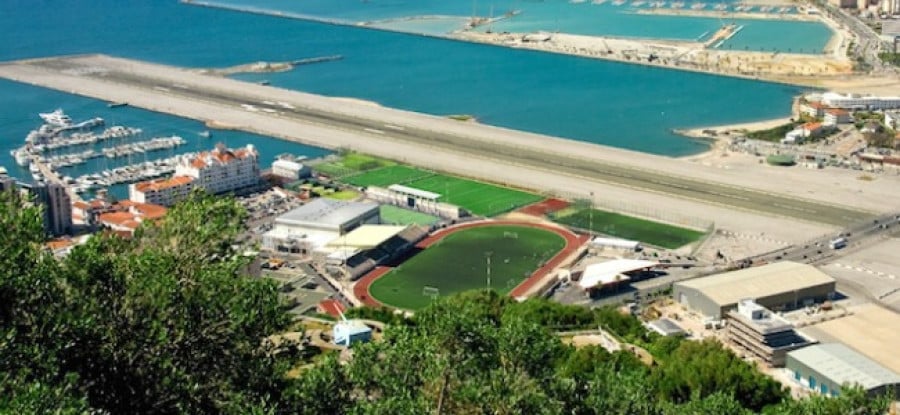The journey of Gibraltar’s Football Association – Part 1: progress to UEFA & FIFA membership

“Between a rock and a hard place.” This is the full legal analysis on the Gibraltar Football Association’s 18-year journey to UEFA and FIFA membership, and the teething issues that they have faced within the local professional leagues.
Gibraltar is a small British Overseas territory at the southernmost tip of the European continent at the foot of the Iberian peninsula and is home for some 29,000 inhabitants. Being one of the oldest football associations in the world, it was only on 24 May 2013 that Gibraltar’s Football Association was named as UEFA’s 54th member nation. Whilst this story has frequently appeared in the international media, this article will go on to analyse and discuss the legal backbone of the story at depths which have not been discussed on the subject to date.
Part 1 on this article will explore the key legal milestones of the progress of Gibraltar Football to date including the Gibraltar Football Association’s (“the GFA”) applications to join UEFA and FIFA, which have spanned the best part of two decades. In Part 2, the authors will go on to discuss the subsequent growing pains of the local football association in having to regulate and professionalise the nation’s favourite game.
Gibraltar’s Football History in a Snapshot
The GFA stands as one of the top 10 oldest footballing associations in the world, as it was formed in 1895, and the association’s history tells a story of a footballing nation’s confidence and ability going from strength to strength.1
Following the creation of its first league competition in 1907, Gibraltar soon hosted two senior divisions and junior leagues by 1909. Gibraltar then developed to host a “Golden Era” of football between 1949 and 1955 when the likes of Admira FC, Wacker FC, Real Valladolid and Real Madrid side all played Gibraltar’s national side.2 In 1965 and 1973 an English FA selection managed by Alf Ramsey also played a Gibraltar FA side.
More recently, the GFA first applied for FIFA membership in 1997 and subsequently for UEFA in 1999. Following numerous appeals to the Court of Arbitration for Sport (“CAS”), Gibraltar was admitted as UEFA’s newest member in 2013 and subsequently its national team has been participating in Group D of the UEFA Euro 2016 Qualifying Tournament, facing the likes of Germany, Ireland Scotland and Poland. In September 2014, Gibraltar’s renewed application for FIFA membership was denied.
Today, the GFA boasts around 2,600 registered players playing in two senior men’s divisions, reserve divisions, a Ladies league and “Futsal” competitions as well as various youth leagues from under 7 to under 15 levels.
To continue reading or watching login or register here
Already a member? Sign in
Get access to all of the expert analysis and commentary at LawInSport including articles, webinars, conference videos and podcast transcripts. Find out more here.
- Tags: Court of Arbitration for Sport (CAS) | England | FIFA | FIFA Statutes | Football | Gibraltar | Gibraltar FA | Governance | Kazakhstan | Regulation | Spain | Spanish Football Association (RFEF) | The FA | UEFA | UEFA Statutes
Related Articles
- Expedited procedures before the Court of Arbitration for Sport
- Integrity in sport update: Gibraltar FA educates community in match-fixing
- Terminating without just cause: when is a new club jointly liable for compensation under the FIFA Regs? The latest Mutu decision
- The journey of Gibraltar’s Football Association – Part 2: growing pains in the professional leagues
Written by
Philip Vasquez
Philip Vasquez is a Barrister and Acting Solicitor who regularly advises on commercial law, regulation, technology and dispute resolution, Philip also appears regularly in the Magistrates & Supreme Court. Philip is highly active in supporting entrepreneurship and innovative businesses in Gibraltar as an organiser of the Gibraltar Startup Community. Philip is also a co-opted member of the Gibraltar Bar Council.
Julian Santos
Julian is a barrister at 5RB specialising in media and entertainment law, including defamation, privacy, harassment and data protection.





